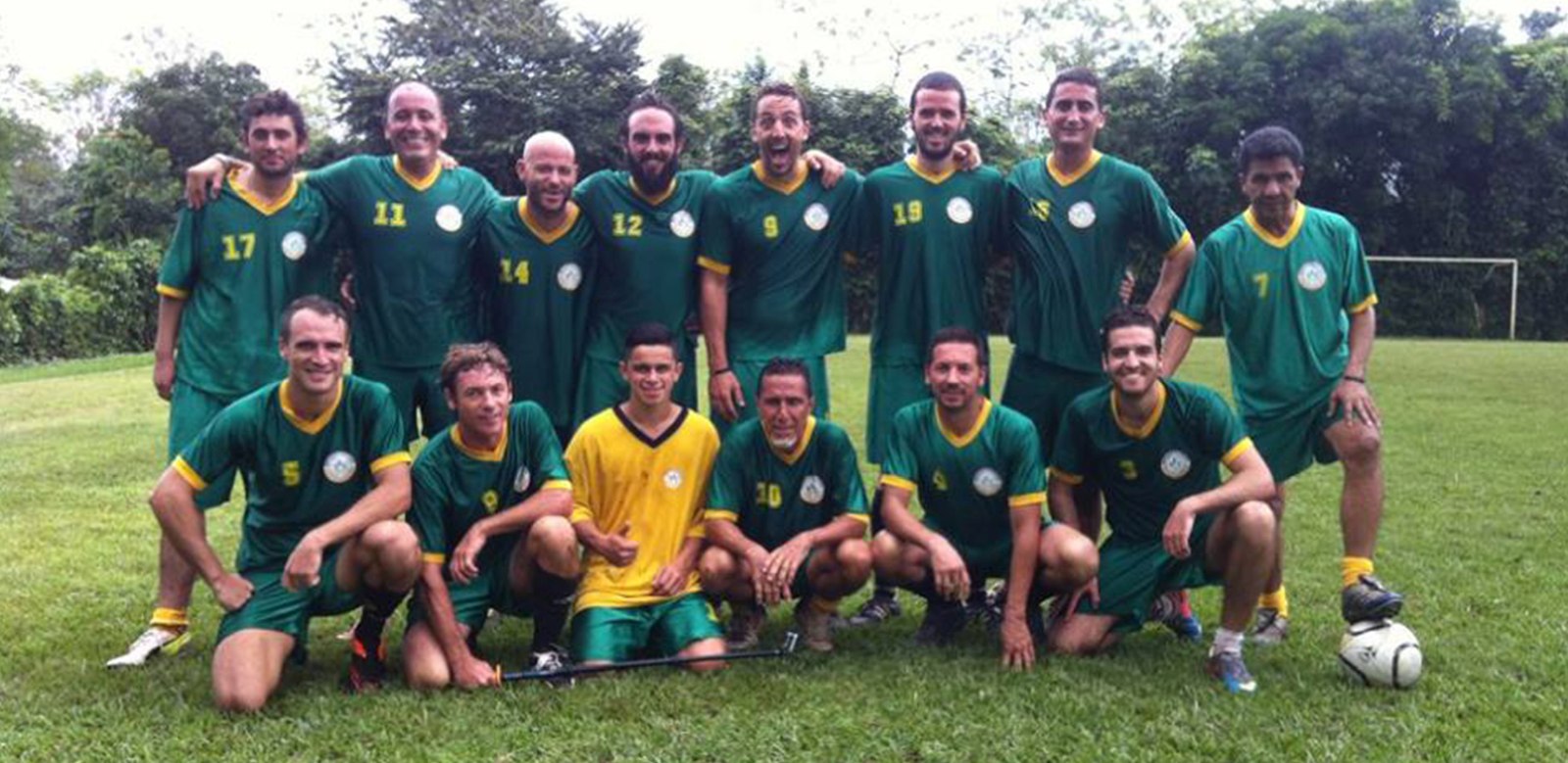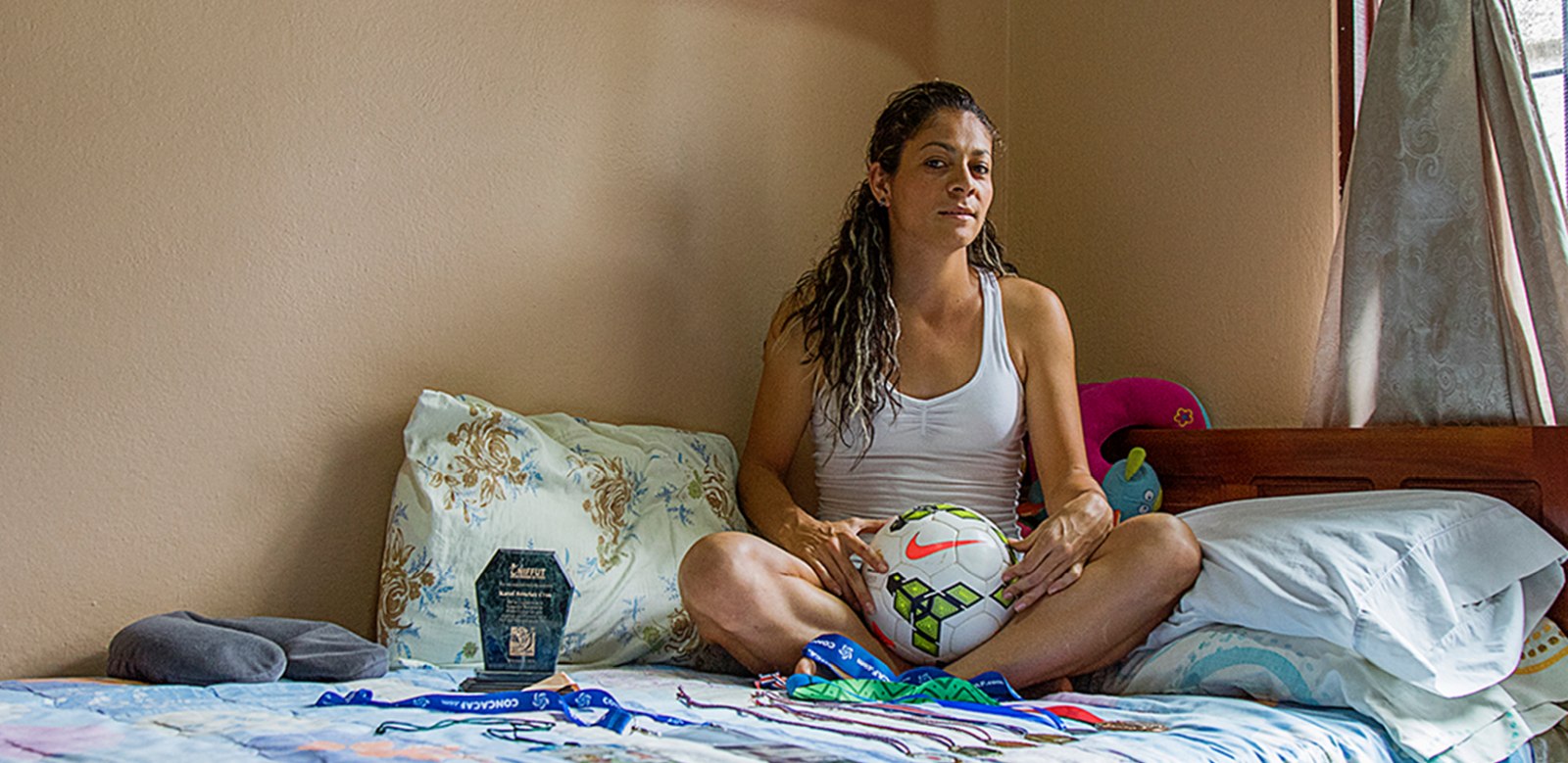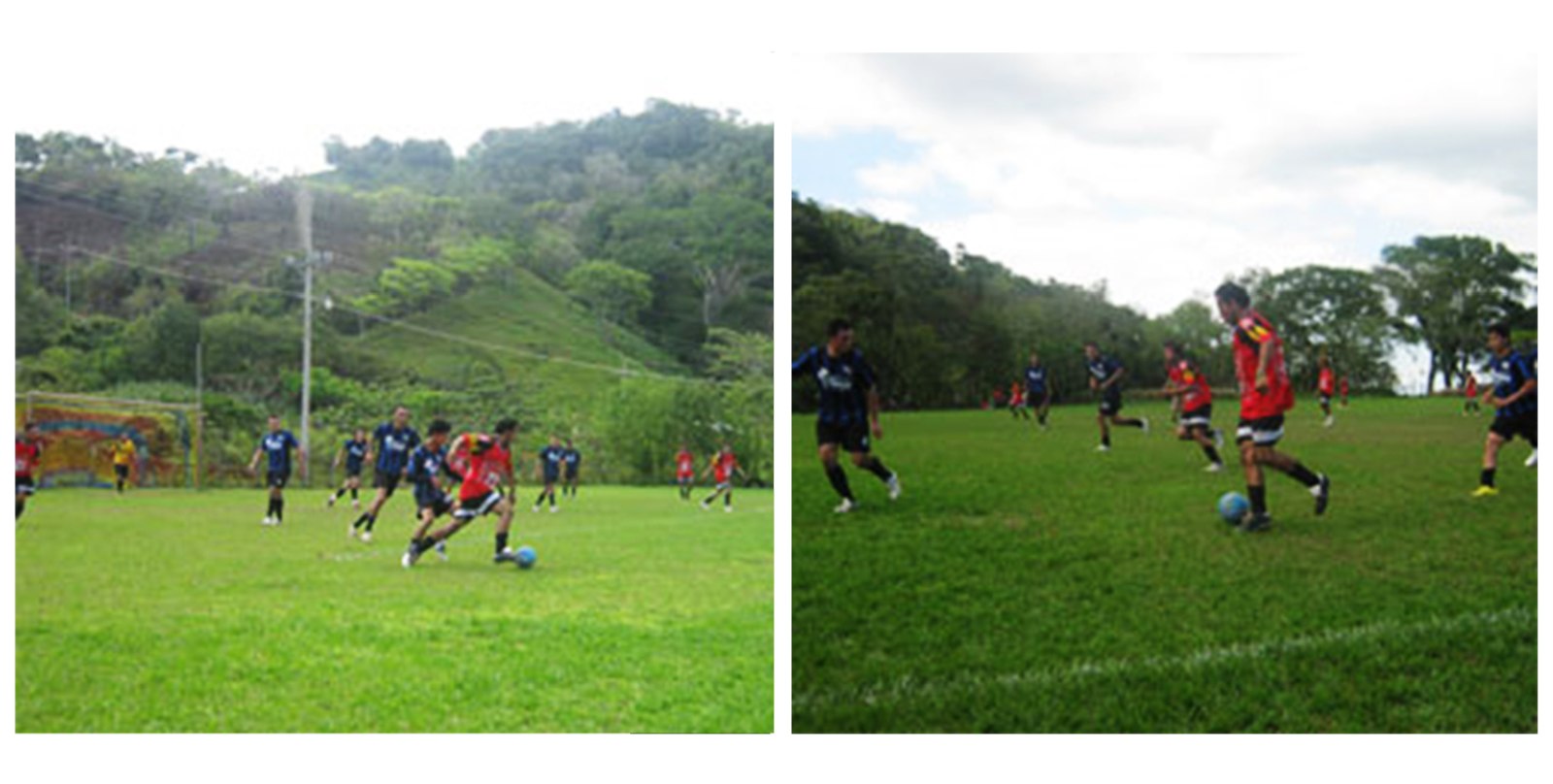
Playing soccer is not just “playing a sport.” It is sharing a passion regardless of social class or nationality. Soccer fever spreads across the humblest pastures and playing fields. It is courage, heart and love of the sport, and is an excellent opportunity to overcome social stigmas.
In the canton of Nicoya, weekends are for letting go of stress and meeting your neighbors with a good neighborhood soccer game. In many cases, people know the team roster by memory, and in others, the lineup is improvised and even the referee blows the whistle in sandals. But what is most striking are the teams made up of members of different nationalities that create an identity under the soccer team colors.
An example of this cultural diversity is Deportivo Desastres (Athletic Disasters), a soccer team made up of veterans from Samara, Carrillo Beach and Guiones Beach who adopted that name because “we are all a disaster,” said Martin Bargo, one of its newest members, smiling.
Fernando Carre and Jose Roldan, both from Argentina, founded the team 15 years ago. The team was previously called Los Ches (Che is a common expression in Argentina, like saying “Hey”) because most of the members were from Argentina, and was more recently called Los Internacionales (The Internationals) due to the increased diversity of nationalities.
The current lineup is made up of seven Argentines, two Costa Ricans, two Spaniards, an Italian, a Frenchman and a Lebanese, with ages ranging from 32 up to 63 years old.
When the team has a full roster, they play soccer 11, and if not, they play soccer 5. Some of the most popular nicknames on the field are: El Bati, Fer, Pachi, Robi and Tincho. It goes without saying that they are all professional Mejenga (slang for fun-soccer) players.
Soccer That Helps the Community
Deportivo Desastres participates in friendly matches almost every weekend, and in every match, money is raised for local communities through the purchase of food or drinks.
For example, they played four games on Saturday, December 13th in Santa Elena, where the activity raised about ¢250,000 ($475) to buy balls and uniforms and maintain the sports plaza.
On other occasions, the funds are used to make community improvements or to help a neighbor in need. That was the case for a neighbor of Gamalotal who had cancer, and thanks to the proceeds from food sales, the area development association was able to buy his medications and support him financially.
In this way, the passion for Sunday soccer games will continue to unite communities, taking soccer beyond sports and recreation to create a sense of belonging among neighbors and to improve the quality of life in the towns.







Comments